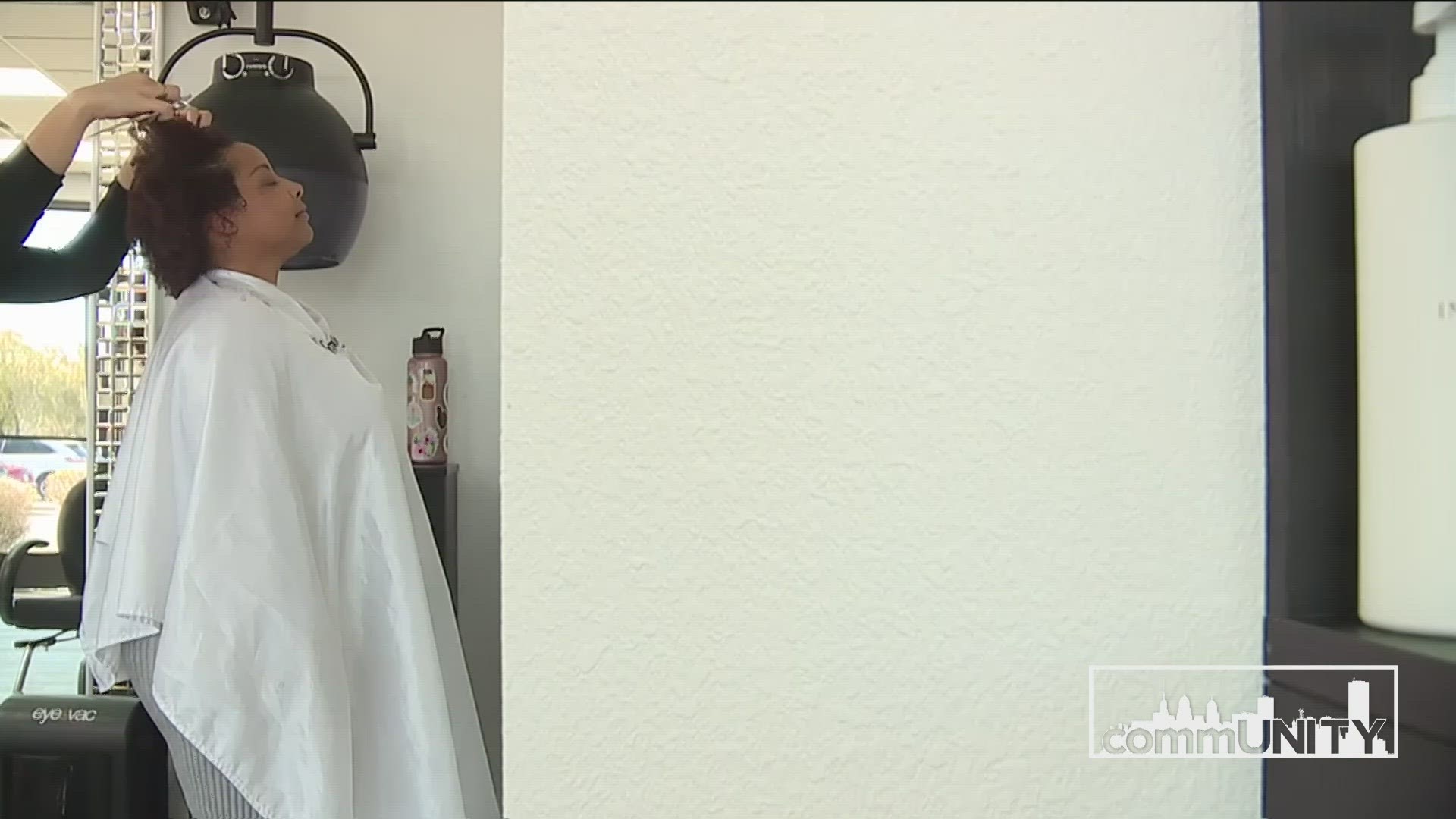BUFFALO, N.Y. — When it comes to Black women and hair, the conversation is very interesting.
Esther Dillard, a former WGRZ-TV reporter in Buffalo, wrote a book called Embracing My Black Natural Hair: A Guide from a Former Television Reporter Who Went Natural.
It's a topic that she wondered about for years, and it really because an issue she thought about after giving birth and no longer using perms.
"I changed how I did my hair from using perms, which was pretty much most of my life, to a natural hairstyle, and I wanted to write about it because it was a unique time in my life," she said.
In fact, she did research and soul searching about why she never wore her hair natural while working in television.
"I always had it straightened, and I had to think about the fact that in the professional field I was in, that was not embraced. Having natural, using natural Afrocentric hairstyles, protective hairstyles, as many people call them, braids or things that will that look Afrocentric, that was not acceptable on the air as a television reporter," Dillard said.
"And I was wondering why that was, and so I started doing some digging, and I found a lot of information that was really interesting to me, and I thought would be interesting to others to share."
Her book details her research.
She admits to wondering why Black women on television did not wear braids.
"It was an unspoken thing, kind of pretty much that, that's just not the professional way that you'd want to wear your hair," Dillard said.
While on air in Buffalo, Dillard was known as Esther Miller.
She recalls learning about Melba Tolliver, one of the first television reporters to push back on wearing her natural hair on air.
According to Dove, about 41% of Black women will straighten their hair for an interview, 54% of Black women feel that they have to wear their hair straightened and not in their natural state in order to get a job. Dillard said "and that's not just for television, that's for any professional field."
U.S. Supreme Court Justice Ketanji Brown Jackson wears her hair natural in what is known as sisterlocks.
Dillard calls it "encouraging" because it's teaching that you can be able to wear your hair in a natural state and still be professional."
The hope is that people get behind the C.R.O.W.N. Act which stands for “Create a Respectful and Open World for Natural Hair,” according to Dillard. The legislation is to ensure protection against discrimination.

